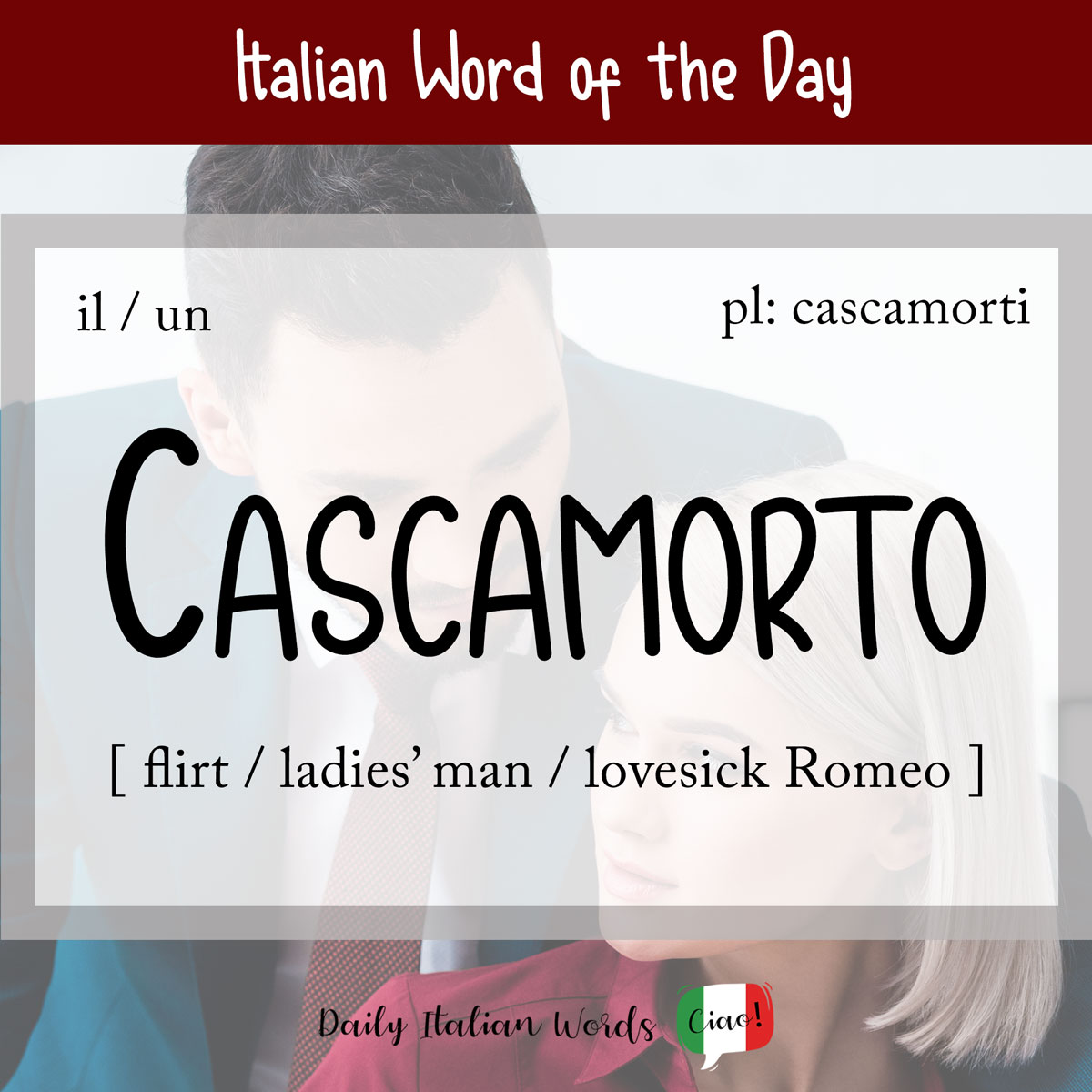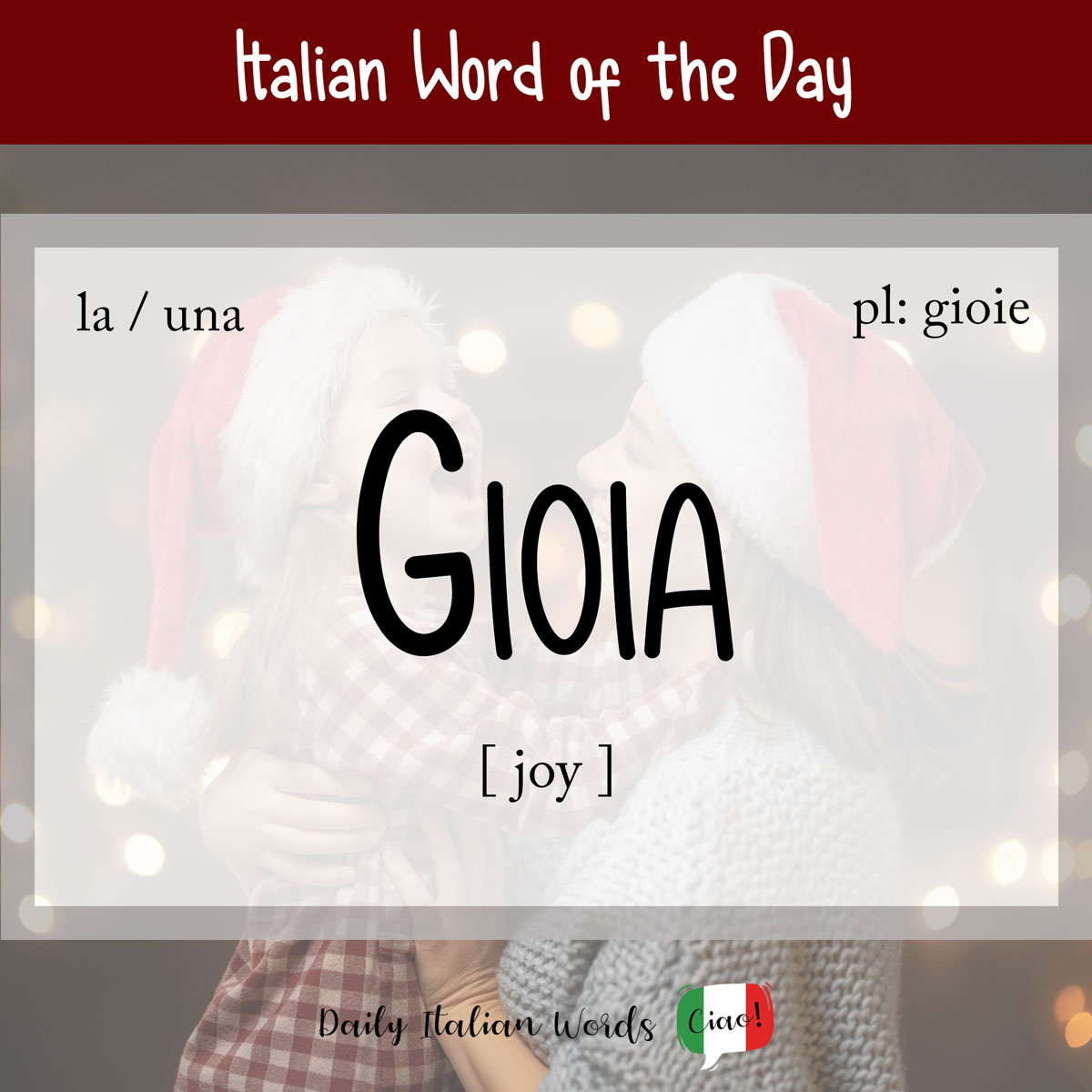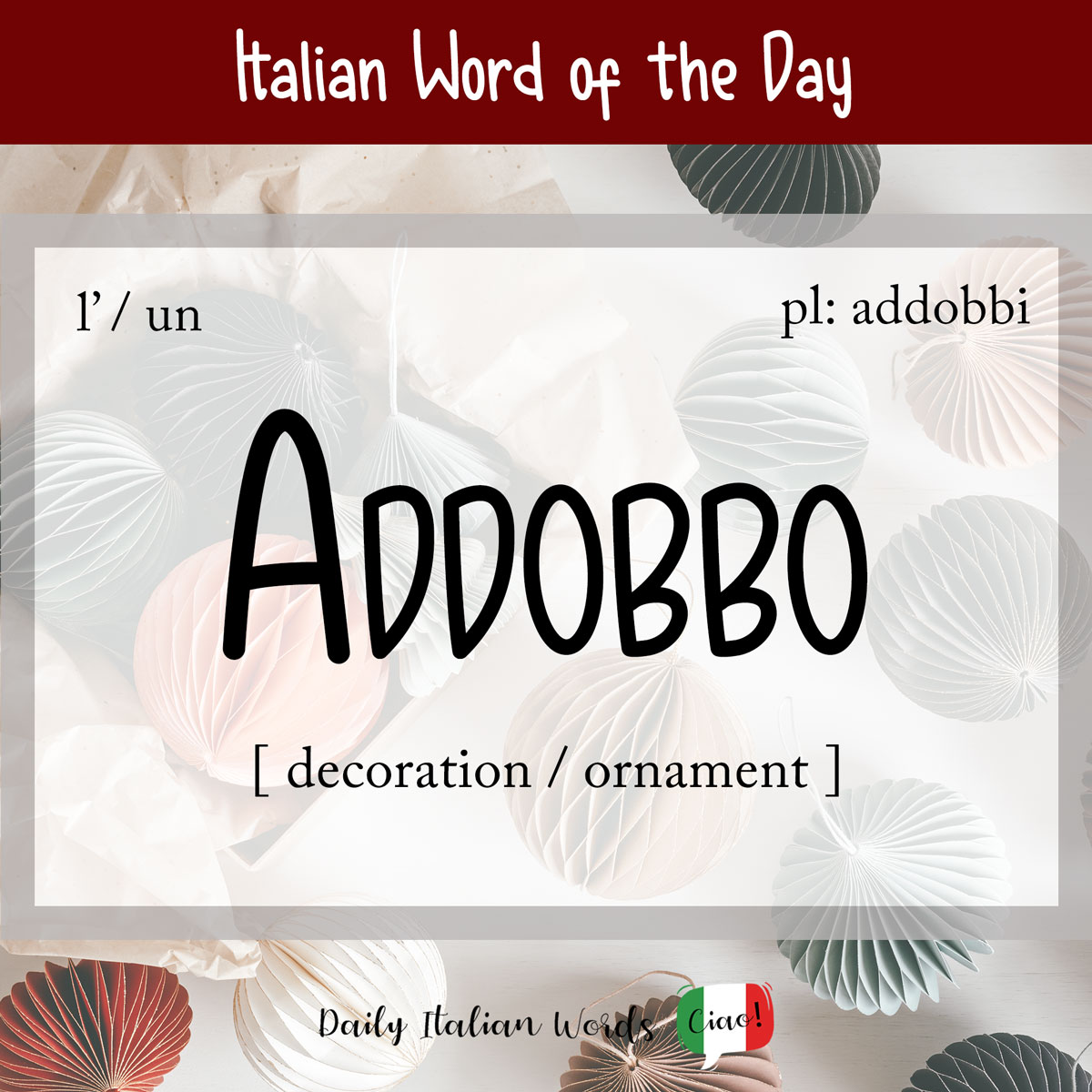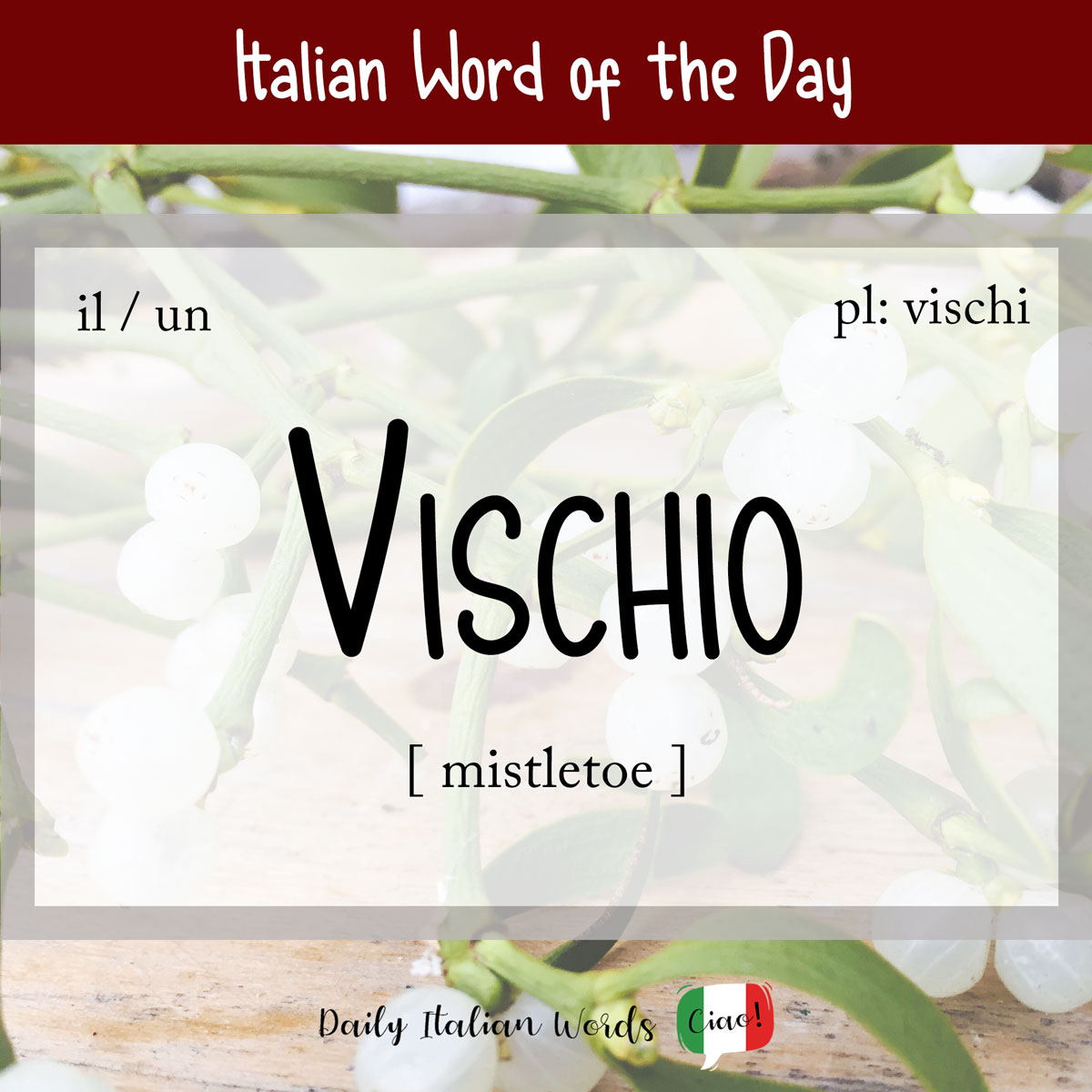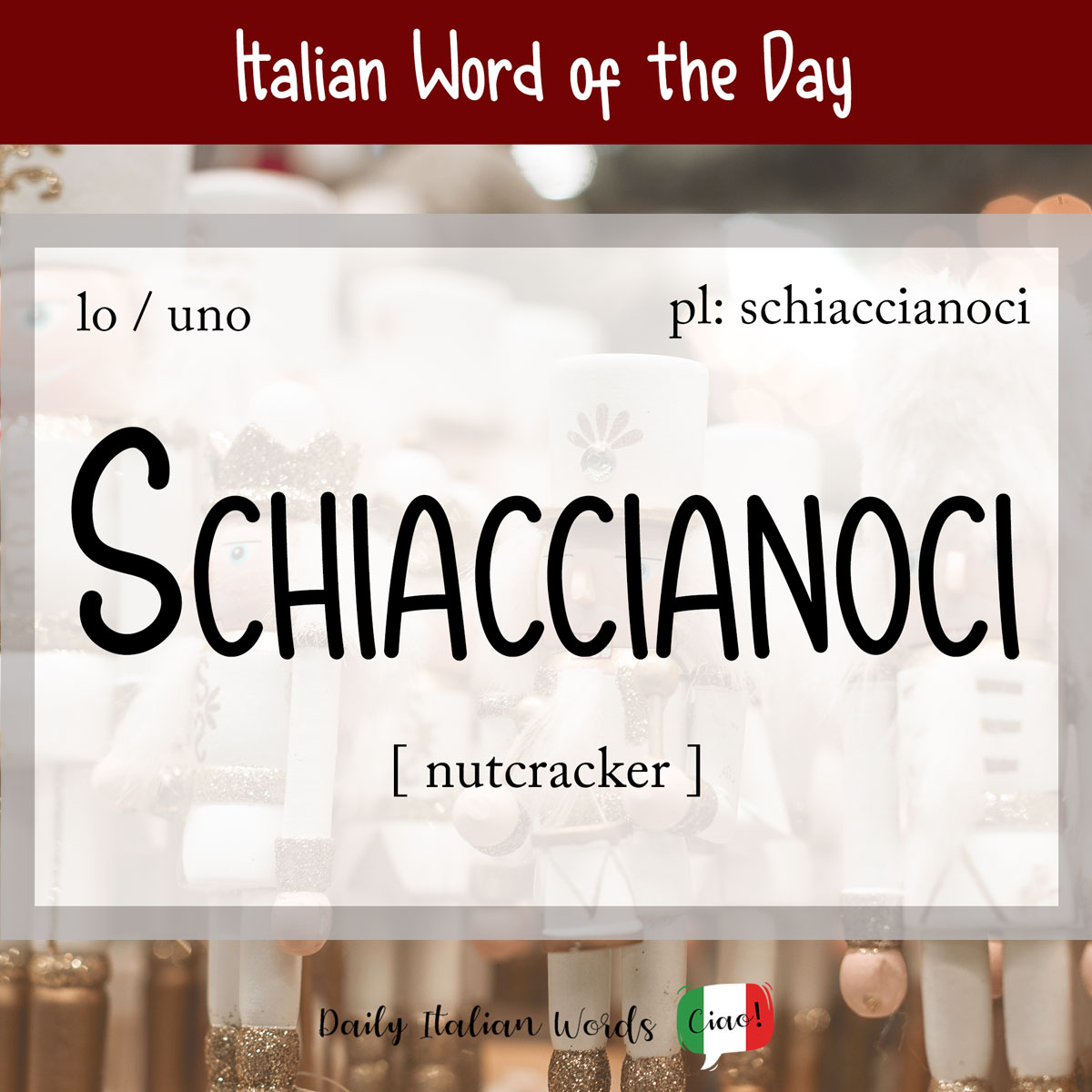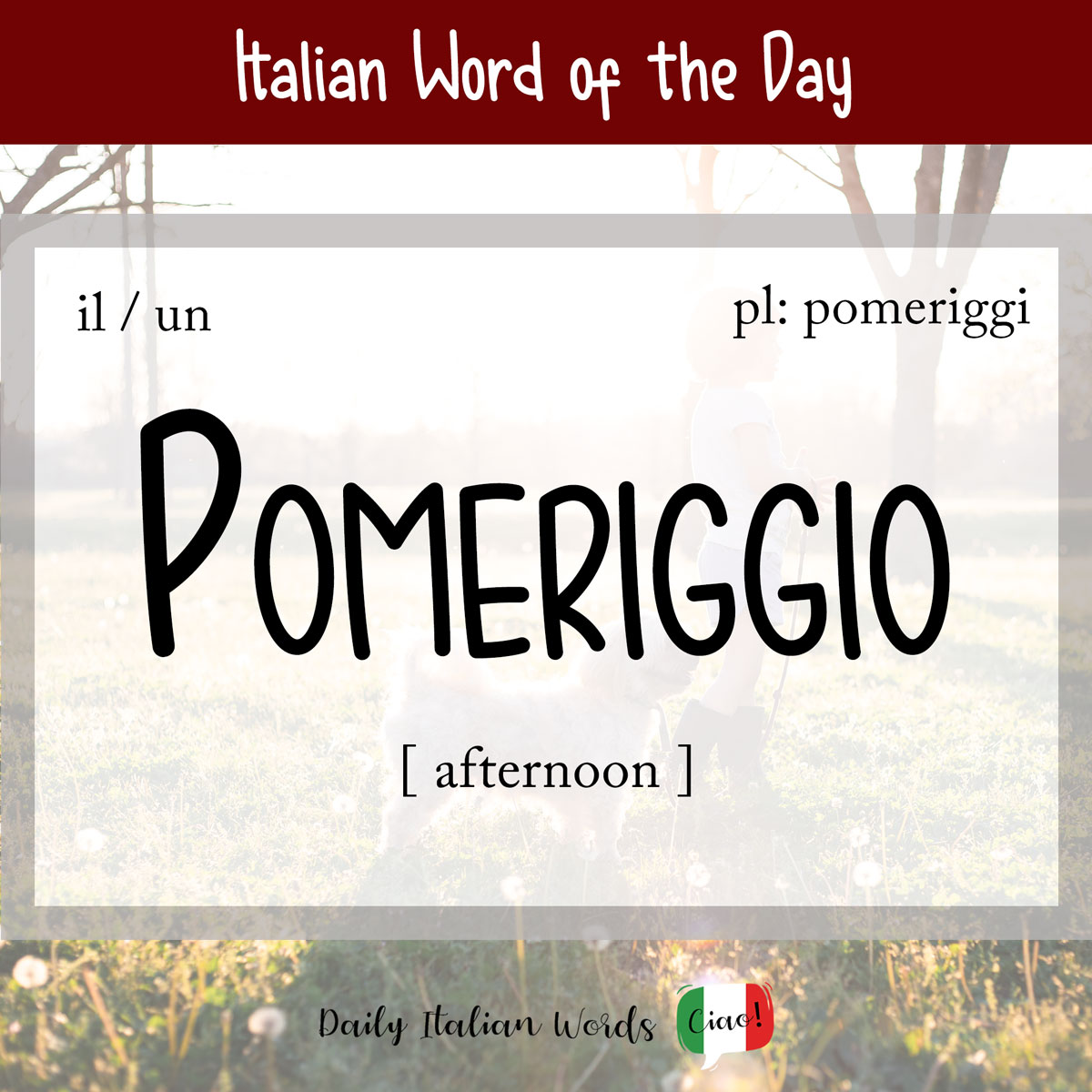Italian Word of the Day: Cascamorto (flirt / ladies’ man)
Today, let’s delve into the world of cascamorto — a term for a bold man who takes on the role of a lovesick Romeo, employing overly sentimental and assertive tactics to win someone over. Typically, a cascamorto‘s actions lack genuine affection, driven instead by hidden motives for a romantic escapade. cascamorto ladies’ man / flirt …

